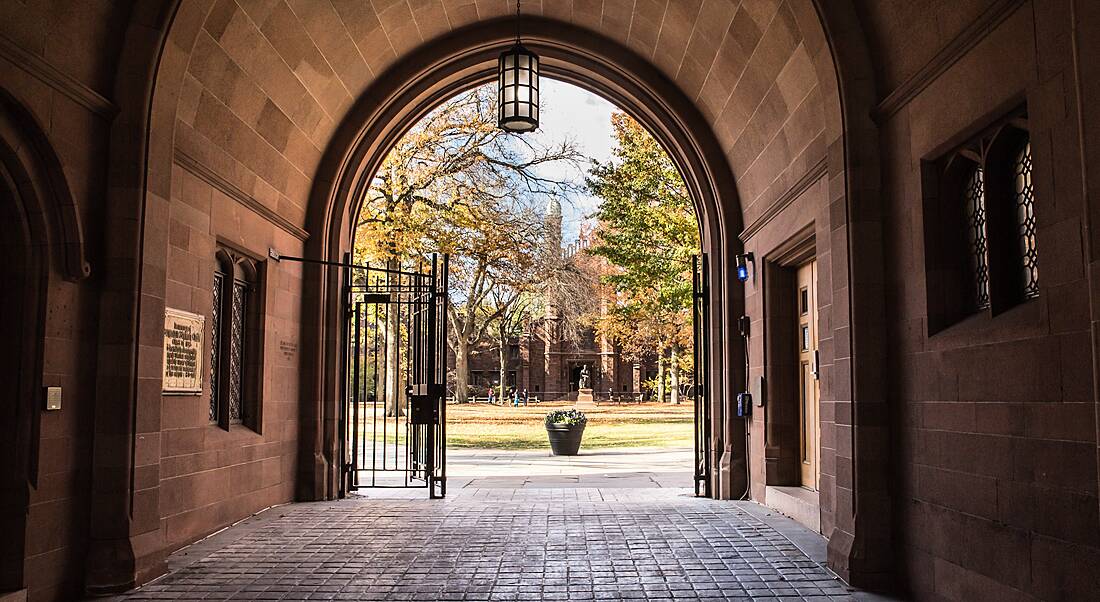Celeste Kidd nearly had her career derailed by a sexual harassment case she reported as a grad student. She thinks it is a systemic problem, one that she plans to change.
Celeste Kidd enjoys a successful career as a professor of psychology at the University of California, Berkeley. She heads up the Kidd Lab, which studies knowledge acquisition – more specifically, the processes that lead to the formation of new information. Her lab does a lot of testing and experiments with infants and young children.
In many ways, this current position aligns with what she set out to do when she first started applying for PhD programmes when she was a 24-year-old linguistics major. Yet she maintains that had it not been for extreme luck and a series of other external factors, things could have turned out very differently due a sexual harassment case she reported during her grad student days at the University of Rochester (UR).
While there, Kidd worked with a newly minted professor named Florian Jaeger for a year. “During that year, I was subjected to what I would describe as unbearable and unrelenting sexual harassment for that entire year.
“The thing that kept me tolerating behaviour that I didn’t want to tolerate was the threats to my professional advancement. He was very clear in communicating that if you didn’t tolerate what he wanted you to tolerate, he had the power and influence to make sure you didn’t go any further. I think part of the story is important to understand; sexual harassment targets people who are not in a position to defend themselves and this is how power-based harassment works.”
It only ended, Kidd said, because she cut off all contact with him. She dropped projects she had been working on for that year and realigned her area of study in order to ensure he couldn’t impact her career. Jaeger wasn’t her primary adviser, though – that was a “wonderful mentor” named Richard ‘Dick’ Astlin, who was the person she had actually wanted to work with.
Kidd said she held out hope that Jaeger would eventually stop his behaviour. When she became a faculty member in the same department at UR, however, she felt this wasn’t the case and that, if anything, the situation had become worse. “Out of concern for my own students who were asked to take classes with him, I felt it necessary to speak up.”
Kidd assumed that the university would follow a reasonable procedure in weighing the evidence. In this digital age, she contends, there’s more concrete evidence than ever to substantiate sexual harassment allegations. Kidd was joined by a spate of other professors and academics in the university who filed EEOC complaints, including Astlin, alleging that Jaeger had created a hostile environment for students and had inappropriate relationships with trainees. The investigating team, headed up by former US attorney and SEC commissioner Mary Jo White, concluded: “We find that the evidence does not support a conclusion that any complainant or other UR student or employee has been subjected to unlawful sexual harassment as a result of Jaeger’s conduct. Although Jaeger’s conduct before 2014 was at times inappropriate, unprofessional and offensive, and may have been harmful to some students, as well as to the BCS and greater UR communities in a variety of ways, we find that Jaeger’s conduct did not meet the standard for sexual harassment, as currently defined by law.”
Jaeger responded to the report with his own statement, in which he said: “This report does not exonerate me, but neither does it give merit to many of the worst accusations made against me. Although I disagree with some aspects of the report, I agree that I could have shown more maturity when I arrived as a 31-year-old faculty member in 2007. Over time I have addressed many of these shortcomings. I never intended to cause harm to students. I deeply regret that my former behaviour made some students uncomfortable and may have discouraged them from working with me.” Jaeger is still on the UR faculty to this day.
Kidd was taken aback and said she tried to show people within the university a spate of inappropriate messages Jaeger had allegedly sent her, but to no avail. “They kept telling me the investigation was closed.”
This is what led her to start looking more deeply into the unique power dynamics in universities, and the flawed manner in which complaints are dealt with. She was soon hailed as a leader of the #MeToo movement in academia, and jointly honoured as Time Person of the Year in 2017.
“We don’t have as much data as we really need about academia specifically, but from general studies of workplace harassment we know that the rates of harassment and the rates of retaliation are higher in areas where there are bigger power differentials between people at different levels.” The issue, she maintains, is that academics can often have near-unilateral control over the course of a student’s career, which is why it is widely suspected that issues of sexual harassment are more severe in academia. It’s a dangerous situation, she says, and it is also very much the traditional academic model.
Kidd also points out that when universities receive sexual harassment complaints, they’re essentially being asked to work against an instinct towards self-preservation by looking into it. “Institutions currently are tasked with an impossible task; they’re asked to investigate themselves. If they find evidence of wrongdoing, what they are doing is hurting themselves down the road by making it easier for a survivor to win a lawsuit … there’s a strong bias to find nothing.”
Even cases that may hold up in a court of law may fall about in the arbitration process within a university. Arbitration, Kidd also points out, keeps survivors separate and doesn’t allow for patterns to be observed. “It does that in the interest of protecting the university from liability.”
Kidd has ideas about how to move forward. Public pressure is the best tool currently at her disposal to inspire change. She also hopes to bring more transparency to the process so that students who were manipulated into thinking their complaints were baseless will realise the self-interest motivating that kind of response.
Kidd said she thinks about the unusual luck she experienced in being able to save her career from the case’s influence, and the thought of the countless other students who weren’t so fortunate pushes her forward with a sense of moral obligation to make things different. She didn’t intend to become an advocate, but she doesn’t know anyone who actually did. She feels hopeful that things will change.
“I’m excited about the future. This generation is definitely different. Their willingness to talk about things that are sensitive in public forums is what I think is pushing us forward. I give them a lot of credit for why change is possible now.”
Updated, 2.56pm, 4 June 2019: This article has been amended to provide more information on the case at UR and to include comments from Jaeger and the investigating team.




